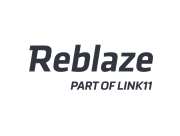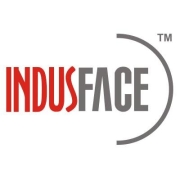Distributed Denial-of-Service Protection solutions defend against massive disruptions by mitigating unwanted traffic, ensuring business continuity. They shield organizations from service outages and downtime that could affect performance and customer satisfaction.
Understanding and managing Distributed Denial-of-Service attacks requires sophisticated technology capable of identifying and blocking malicious traffic patterns. These protections enable businesses to maintain access to online services and protect their reputation. Known for their advanced algorithms, they provide real-time visibility and detailed analytics to quickly thwart potential threats, adapting to different attack vectors effectively.
What are the critical features to consider?In industries such as finance, healthcare, and retail, Distributed Denial-of-Service Protection solutions are crucial. They guard sensitive information, prevent financial loss from service disruptions, and ensure compliance with regulatory requirements. By doing so, they boost consumer confidence and protect transactions.
Distributed Denial-of-Service Protection is essential for preventing downtime, maintaining performance, and safeguarding infrastructures from debilitating cyber threats. Ensuring uninterrupted service and securing data across various sectors, these solutions protect organizations from evolving and sophisticated attacks.


















































While DDoS is not a true virus, it uses malware (malicious software) to affect normal computer operations. Malware can come in the form of viruses, Trojans, spyware, and adware, and other types, and is used by hackers to gain unauthorized access to systems when carrying out DDoS attacks. A DDoS attack incorporates malicious programs in order to target the victim, making the virus more effective and destructive. Malware affects vulnerable devices by turning them into bots. Once the devices have been modified, a DDoS attack is launched as part of the botnet.
A DDoS attack is dangerous because it can cause major disruptions and become a threat to business continuity. These types of attacks affect mission-critical applications that organizations rely on, such as email, CRM systems, salesforce automations, and many other daily business operations. DDoS attacks can force companies to spend fortunes on repairs, can affect consumer trust, can lead to lost revenue, and can damage an organization’s reputation. When applications become unavailable or a public-facing website is down, productivity suffers. Unfortunately, one DDoS attack means that more attacks are likely expected to continue until more robust defense solutions are deployed.
Ensuring your website's uptime is critical for maintaining customer trust and achieving your business goals. DDoS Protection helps by identifying and mitigating malicious traffic that threatens to overwhelm your server. With these solutions in place, your website remains responsive and available even during an attack, preserving user access and minimizing the risk of revenue loss.
What types of DDoS attacks can DDoS Protection solutions mitigate?DDoS Protection solutions are designed to handle various types of attacks, including volumetric, protocol, and application-layer attacks. Volumetric attacks flood available bandwidth with fake traffic while protocol attacks exploit weaknesses in network protocols. Application-layer attacks target specific web applications and services. Effective solutions can identify these patterns and neutralize threats before they impact your system.
What are the key features to look for in a DDoS Protection service?When evaluating DDoS Protection services, look for features such as scalability, real-time monitoring, and automatic threat detection. Scalability ensures that the solution can handle increased traffic load, while real-time monitoring keeps you informed about ongoing incidents. Automatic threat detection and mitigation help respond to threats swiftly, reducing potential downtime.
How does DDoS Protection integrate with existing security measures?DDoS Protection seamlessly integrates with existing security measures like firewalls and intrusion detection systems, creating a comprehensive defense strategy. By working together, these tools ensure that both network-level and application-level threats are mitigated, enhancing your overall security posture without disrupting existing workflows.
What role does cloud-based infrastructure play in DDoS Protection?Cloud-based infrastructure plays a crucial role in DDoS Protection by offering scalable resources that can absorb and mitigate large-scale attacks. This flexibility allows your DDoS Protection to dynamically adjust to varying threat levels, ensuring that your services remain accessible and secure. Cloud providers often offer advanced analytics and global threat intelligence to enhance your defense strategies.